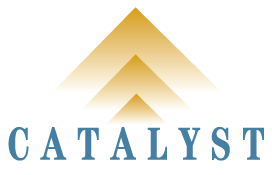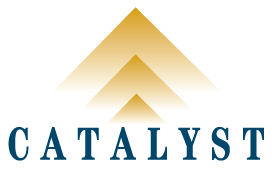-
Strategic Impact
- July 31, 2016
- Category: Positioning and Strategy
- Publication: Lexpert, Vol. 17, No. 9, July-August 2016
You get what you measure. A key performance indicator (KPI) for “Strategic Impact” challenges the law department to choose its priorities, show more leadership, offer more resources to corporate business priorities, and re-think its critical competencies for senior counsel.
-
Value with Innovation in the Law Department
- July 1, 2016
- Category: Positioning and Strategy
- Publication: Juristes d’entreprises, Special Edition, October 2016
Inside counsel operating as the hard-working “artist-in-residence” is not a sustainable model. For the most part, it is not strategic in its approach and there are not enough hours in the day. Innovation should be a stand-alone performance indicator for the law department, because it focuses on strategic initiatives more than on operational support in the delivery of legal services. It requires leadership with a sensible allocation of resources.
For the most part, the best innovations are externally focused. Commercially astute solutions are well-received. A second performance indicator measuring strategic impact with select initiatives underscores the contribution of the law department. It requires innovation and out-of-the-box thinking by the General Counsel.
-
The Rest of the World
- May 1, 2016
- Category: Managing Total Legal Spend
- Publication: Lexpert, Vol. 17, No, 7, May 2016
Retaining 100 local law firms in as many countries can be inefficient and expensive even if it is for routine litigation and employment issues. A study of invoices from 25 countries in 4 regions revealed that the scope of work was poorly defined, activity reports were sketchy, and pricing varied from fixed monthly retainers to hourly rates discounted by 70%. The company committed to harmonized practice patterns, centralization in retaining local counsel through regional coordinating firms, fixed fee pricing for 3 years, and matter management and reporting systems to support the new operating protocols.
-
Meeting Management Challenges in the Legal Department
- April 1, 2016
- Category: Positioning and Strategy
- Publication: CCCA Magazine, Vol. 10, No. 1, Spring 2016
Four management challenges are being addressed by the law departments of progressive companies:
• Coverage, organization and resources;
• Efficiency, workflows and workloads;
• Value performance, metrics and KPIs; and
• Legal spend and costs.Five steps are described
1. Determine the department’s activity levels;
2. Select a handful of performance indicators that are part of the value proposition;
3. Manage work traffic in the department;
4. Assign and align the right amount of legal and paralegal resource with each user group; and
5. Actively manage the cost of external counsel in two ways. -
Leaning In
- March 1, 2016
- Category: Positioning and Strategy
- Publication: Lexpert, Vol. 17, No. 5, March 2016
Six processes support process improvement. The first three focus on the customer for value engagement. They include value creation, figuring out how the work gets done and removing waste. The fourth requires evidence-based decision-making, fifth is people empowerment, and the last is sustainable process improvement.
Process improvement will be successful when client behaviours change to require less legal service and more self-sufficiency from clients.
-
An Unsustainable Business Model
- October 1, 2015
- Category: Workflows and Workloads
- Publication: Lexpert, Vol. 17, No. 1, October 2015
The CEB reports that, for two reasons, the relationship-based business model for corporate law departments is fundamentally unsustainable. First, the number of individuals calling on inside counsel for routine matters has proliferated beyond the company executive team. Second, most internal clients want resolution not a relationship. Some General Counsel are conducting detailed studies of demand patterns affecting their resources. Others are introducing protocols and programs to make many regular clients self-sufficient.
-
The Legal Weather Forecast
- May 1, 2015
- Category: Positioning and Strategy
- Publication: Lexpert, Vol. 16, No. 7, May 2015
Up to 50% of the operational support provided by law departments to business lines can be standardized or kept with business units. There are 5 steps to preparing a good business plan for the law department: alignment with corporate priorities, detailed work estimates, work allocation protocols, improving practice management, and metrics. Accurate forecasts and good business plans improve the value of the law department.
-
World Class Effectiveness
- February 1, 2015
- Category: Positioning and Strategy
- Publication: Lexpert, Vol. 16, No. 4, February 2015
A 4-part assessment tool to guide law departments is profiled and critiqued. It covers opportunities for creating value in the company, optimizing talent for higher value work, operational effectiveness, and the effectiveness of external counsel. The article comments on the 20 segments supporting the assessment and suggests several new assessment questions.
-
Arrested Development
- July 31, 2014
- Category: Organization and Resources
- Publication: Lexpert, Vol. 15, No. 9, July-August 2014
Legal and corporate priorities are a frequent distraction for General Counsel trying to change the practice management and work allocation patterns of the legal department. Four management skills are essential to meaningful change in how legal resources are managed: a focus on results rather than process; a commitment to innovation with external counsel; a strategic business sense; and the efficient use of time for administrative matters.
Articles on Demand – Archive

